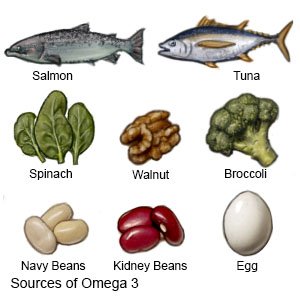Cardiac Rehabilitation
Medically reviewed by Drugs.com. Last updated on Apr 6, 2025.
Cardiac rehabilitation (rehab) is a program that is supervised by healthcare providers. A cardiac rehab team includes doctors, nurses, exercise specialists, physical or occupational therapists, dietitians, and mental health providers. The providers will teach you ways to strengthen your heart and prevent future heart problems. Cardiac rehab may help you live longer by keeping your heart as healthy as possible. The program helps you recover from heart procedures and surgeries. It also teaches you how to manage your heart condition. Cardiac rehab may last for several weeks or months, depending on your condition.
DISCHARGE INSTRUCTIONS:
Call your local emergency number (911 in the US) if:
- You have any of the following signs of a heart attack:
- Squeezing, pressure, or pain in your chest
- You may also have any of the following:
- Discomfort or pain in your back, neck, jaw, stomach, or arm
- Shortness of breath
- Nausea or vomiting
- Lightheadedness or a sudden cold sweat
Drugs used to treat this and similar conditions
Crestor
Crestor (rosuvastatin) is used to treat high cholesterol and high triglycerides in the blood ...
Ranexa
Ranexa (ranolazine) is used to chronic treat angina (chest pain). Learn about side effects ...
Ozempic
Learn about Ozempic (semaglutide) for type 2 diabetes treatment, weight management, cardiovascular ...
Ibuprofen
Ibuprofen (Advil, Motrin) treats minor aches and pains caused by the common cold, headaches ...
Gabapentin
Gabapentin is an anti-epileptic drug, also called an anticonvulsant. It is used to treat some types ...
Tramadol
Tramadol is an opioid medication that may be used to treat moderate to moderately severe chronic ...
Clopidogrel
Clopidogrel systemic is used for acute coronary syndrome, acute coronary syndrome, prophylaxis ...
Acetaminophen
Acetaminophen is a widely used pain reliever and fever reducer for conditions like headaches ...
Plavix
Plavix (clopidogrel) is used to prevent blood clots after a recent heart attack or stroke. Includes ...
Call your healthcare provider or cardiologist if:
- You have questions or concerns about your condition or care.
What cardiac rehab includes:
Cardiac rehab specialists will examine you, ask about your symptoms, and make sure any medicine you take is working. They may use tests, such as an EKG, to monitor your heart rate and rhythm. They will also work with you individually and help you with the following:
- Manage other health conditions that can worsen your heart condition. Your cardiac rehab team will monitor other health conditions you have. They may give you medicine and teach you ways to control your blood sugar level, blood pressure, or cholesterol level. They will also help you create a weight loss plan if you are overweight. You may receive counseling if you are depressed, anxious, angry, or stressed. These feelings are common with heart disease. A counselor can teach you ways to reduce your stress and improve your mood. This may help improve your heart condition and quality of life.
- Exercise safely. A physical or exercise therapist will create an exercise plan that is best for you. He or she will help you slowly and safely increase your activity without making your symptoms worse. He or she will show you safe ways to warm up and cool down when you exercise. Exercise can help you control blood pressure, weight, and blood sugar and cholesterol levels. The goal of cardiac rehab is to help you be able to safely exercise 30 to 60 minutes every day, or as directed.
- Create a heart-healthy nutrition plan. Healthy nutrition can help protect and strengthen your heart, and control your weight. A nutritionist will teach you which heart-healthy foods to eat. He or she will help you create a meal plan that includes vegetables, fruits, omega-3 fatty acids, and high-fiber foods. You may also need to be on a low-sodium or low-fat diet.

- Quit smoking. Nicotine and other chemicals in cigarettes and cigars can increase your risk for heart attack and stroke. Ask your healthcare provider for information if you currently smoke and need help to quit. E-cigarettes or smokeless tobacco still contain nicotine. Talk to your healthcare provider before you use these products.
- Limit alcohol. Your healthcare provider or cardiologist will tell you if alcohol is safe for you to drink. Alcohol can make your heart problems worse, and interact with your medicine. Women should limit alcohol to 1 drink a day. Men should limit alcohol to 2 drinks a day. A drink of alcohol is 12 ounces of beer, 5 ounces of wine, or 1½ ounces of liquor.
Follow up with your healthcare provider or cardiologist as directed:
Write down your questions so you remember to ask them during your visits.
© Copyright Merative 2025 Information is for End User's use only and may not be sold, redistributed or otherwise used for commercial purposes.
The above information is an educational aid only. It is not intended as medical advice for individual conditions or treatments. Talk to your doctor, nurse or pharmacist before following any medical regimen to see if it is safe and effective for you.
Learn more about Cardiac Rehabilitation
Care guides
Further information
Always consult your healthcare provider to ensure the information displayed on this page applies to your personal circumstances.
